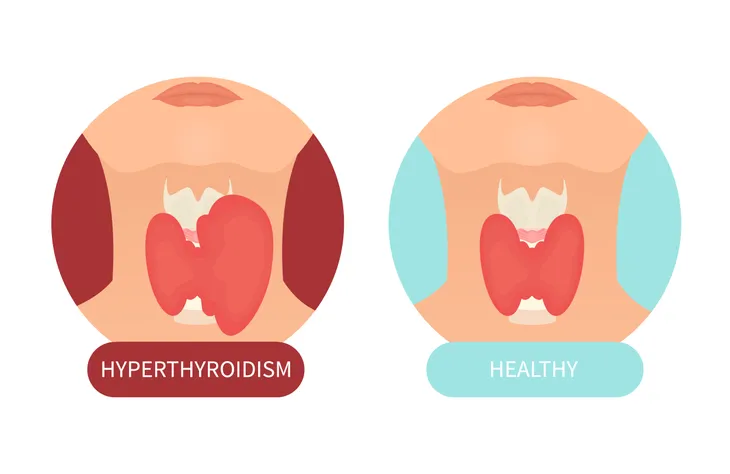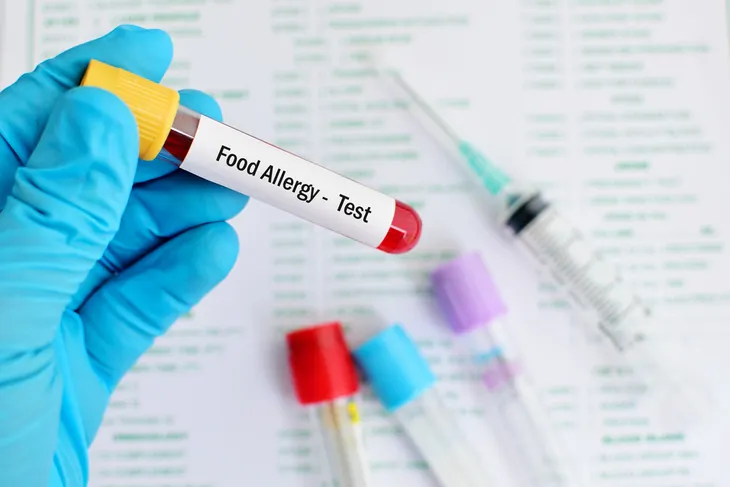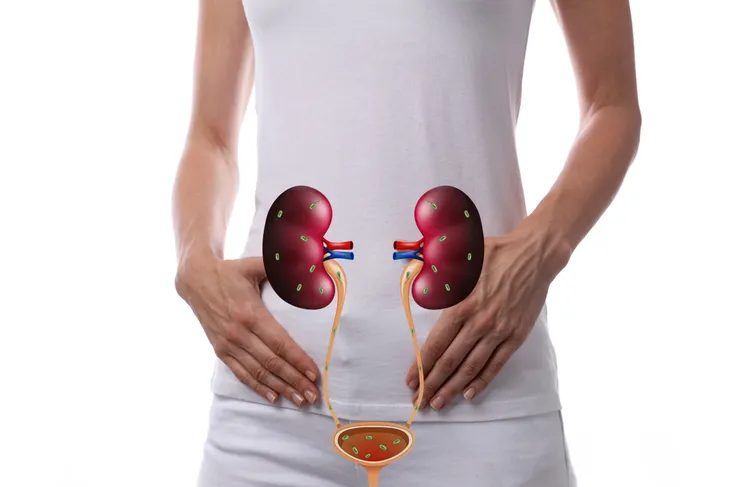You could be at work, typing away innocently at your computer when BOOM, your internal body temperature spikes like molten volcanic magma. Hot flashes can come on suddenly and without warning, leaving you flushed, sweaty, chilled, and heart racing. However, according to Dr. Alexandra Sowa, not all hot flashes are related to perimenopause and menopause.
Here are six reasons why men and women can suffer hot flashes…
Hyperthyroidism
Body temperature is largely governed by the endocrine system (aka: your hormones) so it makes sense that if the endocrine system is not functioning properly, you may experience hot flashes.
According to MedicineNet.com, hyperthyroidism (or an overactive thyroid) results with production of excess thyroid hormones. Depending on the cause (i.e., thyroiditis or Graves disease), you could experience hot flashes in addition to weight loss, appetite and bowel changes.
Hot Foods and Environments
Many times, a hot flash will be caused by something as simple as eating a spicy meal or overheating in a hot room. For instance, if your thermometer is set on high before bed or if your bed has too many blankets, body temperature will fluctuate during the night and can leave you waking up sweaty and overheated.
Also spicy foods and caffeinated beverages—coffee, alcohol, and hot peppers—can stimulate nerves, cause blood vessels to dilate blood vessels and turn up your inner core body temperature to the extreme.
Food Allergies
Dr. Bessie Jo Tillman, California-based MD, explains that hot flashes can often be the sign of an underlying and unidentified food allergy or intolerance. Although eating suicide wings or noodles covered in hot sauce can turn up the heat, paying attention to how your body reacts to certain foods can help you identify food issues.
Dr. Tillman claims that food allergies can trigger hot flashes as well as symptoms such as flushing, sweating, acne, inflammation, hives, dark circles, and even hair loss.
Infections
While it can be easy to mistake a hot flash for a fever—the opposite is also true. And if your body is attempting to fight off a urinary tract infection (UTI), it’s common for the body to release a series of chemicals that spike body temperature, cause flushing, sweating, and chills that simulate a hot flash.
Research from WebMD also notes that Carcinoid syndrome, caused by the rare growth of a carcinoid tumor in the lung or digestive tract, can often cause symptoms that mimic hot flashes (i.e., facial redness, racing heartbeat, flushing, an a rush of overwhelming heat).
Your Medications
If you’ve started experiencing hot flashes around the same time you began taking a new medication, chances are turning up the heat may be a direct side effect of your prescription medication.
In fact, research from Healthline explains that hot flashes may occur when taking prescription medications, cancer treatments, chemotherapy, and others.
Stress and Anxiety
When you envision your stress levels spiking, it’s not uncommon to picture a thermometer shooting to extreme temperatures. According to many medical experts this analogy isn’t too far off—leading to symptoms of increased heart rate and even hot flashes. (Learn more in our article on How Stress Can Affect Our Physical Health).
Research from Healthline describes a typical stressful situation, where epinephrine and norepinephrine hormones are triggered, blood flow increases, and body temperature spikes, causing “entire sections of your body to turn red and feel extremely warm.”









